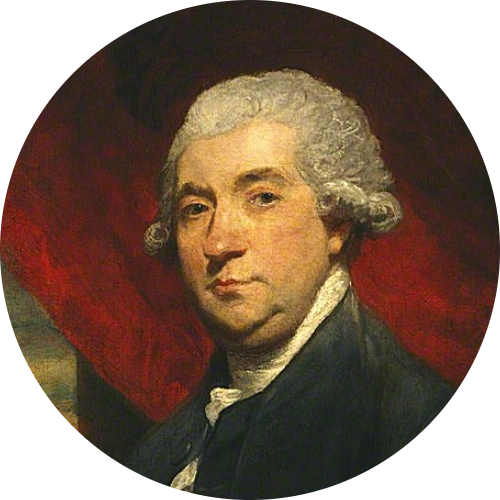William Pitt, known in history as Pitt the Elder, was born on November 15, 1708, in Westminster, London, the son of Robert Pitt, a Member of Parliament, and Harriet Villiers, daughter of Edward Villiers-FitzGerald and Katherine FitzGerald. He married Hester Granville (1720-1803), daughter of the 1st Countess Temple, with whom he had five children.
Coming from a family with a strong parliamentary tradition, Pitt was immersed in politics from an early age. His education at Eton College and later at Trinity College, Oxford, though not completed due to health issues, laid the foundation for his distinguished public service career.
Pitt's entry into politics was marked by his election as a Member of Parliament in 1735. His early career in the House of Commons was characterized by his opposition to the policies of Sir Robert Walpole, the first Prime Minister of Great Britain. Pitt's eloquence and formidable debating skills quickly established him as a leading figure among the opposition Whigs.
In 1756, during the Seven Years' War, Pitt was appointed Secretary of State for the Southern Department (as it was then known) and became the de facto leader of the government. His leadership was instrumental in turning the tide of the war in favor of Britain. Pitt's strategies expanded British territories overseas, particularly in India and North America, laying the groundwork for the vast British Empire of the 19th and early 20th centuries. His success in expanding British influence globally earned him the nickname "The Great Commoner."
Despite his successes, Pitt's political career was tumultuous, marked by his resignation in 1761 due to disagreements over military strategy and policy towards the European powers. He briefly returned to power as Prime Minister in 1766 but was forced to resign in 1768 due to poor health and political opposition.
William Pitt, 1st Earl of Chatham, died on May 11, 1778. His legacy continued through his son, William Pitt the Younger, who also served as Prime Minister of Great Britain and became one of the country's youngest and longest-serving leaders. The elder Pitt's contributions to British politics and his impact on the expansion of the British Empire have cemented his place as one of the most influential figures in British history.
Shortly after returning to England from his Grand Tour, Boswell on February 15, 1766 wrote to Pitt requesting an audience to "acquaint you with some things which past between Signor De Paoli and me", Paoli being the leader of the Corsican rebels, whom Boswell had befriended during his visit to the interior of that island in 1765. Pitt was at that time an ordinary Member of Parliament, having resigned from government in 1761. He was to form a government to become Prime Minister half a year later.
Pitt returned a positive reply on February 16, in which he assured Boswell "that I shall esteem myself fortunate in the opportunity of being introduced to your acquaintance", but also raising doubts as to whether it would not be more appropriate for Boswell to communicate to the Secretary of State, rather than to "a simple Individual, as I am, (in all respects, but that of a Privy Counsellor which adds to the difficulty)."
However, hailing, in his own words, "from a people among whom even the honest arts of insinuation are unknown"1 Boswell would not let himself be put off by Pitt's reply, and so on Sunday, February 23 he called at Pitt's in Bond Street and was properly introduced to the great man, who was already in the company of Lords Shelburne and Cardross. They initially talked about Rosseau and Voltaire, and when the two Lords went away, continued discussing the Corsican cause and Boswell's visit to that island, an account of which Pitt claimed to have already read in the papers.2
Boswell wrote to Pitt on a few further occasions, including on January 3, 1767, when he urged Pitt, by now Prime Minister, to support the Corsicans. Pitt, then suffering from "a severe fit of the gout and totally unable to write", replied in a letter dated February 4 that while he "retain the same admiration of your illustrious friend, General Paoli, which I once expressed to you [...] I see not the least ground at present for this country to interfere with any justice in the affairs of Corsica. [...] I doubt not you will approve the directness of my opinion upon an occasion which admits of no deliberation."
